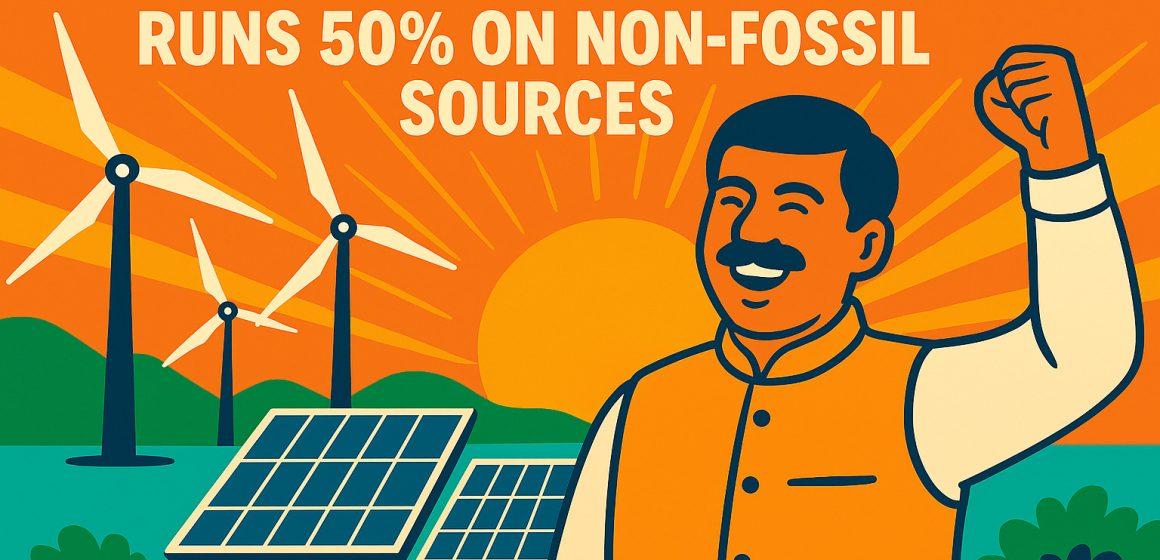Despite having one of the lowest per capita emissions globally, India remains among the few G20 countries that are on track to meet, or even exceed, commitments made at the Paris Climate Agreement.
India, the world’s fastest-growing renewable energy market, achieved 50 per cent of its installed electricity capacity from non-fossil fuel sources a full five years ahead of the target set under its Nationally Determined Contributions (NDCs) to the Paris Climate Agreement.
Announcing this in a tweet (https://x.com/JoshiPralhad/status/1944719387933458688?ref_src=twsrc%5Etfw%7Ctwcamp%5Etweetembed%7Ctwterm%5E1944719387933458688%7Ctwgr%5E18c3f608cb241cbf60ab736cda4dcc26a19d9fd3%7Ctwcon%5Es1_&ref_url=https%3A%2F%2Fwww.pib.gov.in%2FPressReleasePage.aspx%3FPRID%3D2144627) on microblogging site X on Monday, Pralhad Venkatesh Joshi, Union Minister for New & Renewable Energy, said, “In a world seeking climate solutions, India is showing the way. Achieving 50 per cent non-fossil fuel capacity five years ahead of the 2030 target is a proud moment for every Indian. Prime Minister Shri Narendra Modi’s leadership continues to drive Bharat’s green transformation—paving the path towards a self-reliant and sustainable future.”
Flagship government initiatives such as PM Kusum, PM Surya Ghar Muft Bijli Yojana, solar park development, and the National Wind-Solar Hybrid Policy and promotion of the bioenergy sector were laying a strong foundation for this transition, a government release said.
“These initiatives have not only decarbonised the power sector but have also delivered widespread co-benefits—enhanced energy access, employment generation, reduced air pollution, better public health outcomes, and stronger rural incomes. India’s clean energy revolution is as much about inclusive growth and social justice as it is about reducing emissions,” the release added.
Progress On-Track
The milestone holds immense significance in the global context. Despite having one of the lowest per capita emissions globally, India remains among the few G20 countries that are on track to meet, or even exceed, their NDC commitments. At international platforms such as the G20 and the Conference of the Parties (COP) to the UN Framework Convention on Climate Change, the country has consistently advocated for climate equity, sustainable lifestyles, and low-carbon development pathways.
Besides, the achievement further reinforces the country’s leadership position as a clean energy frontrunner, demonstrating that economic growth and environmental stewardship can go hand in hand.
India has set a target of achieving 500 GW of non-fossil capacity by 2030 and net-zero emissions by 2070.


